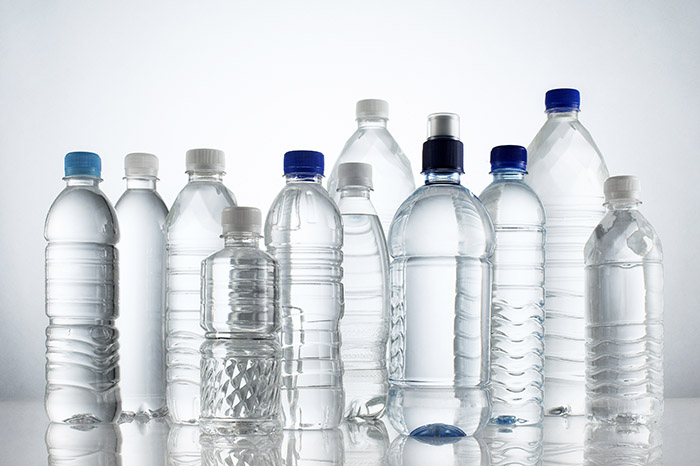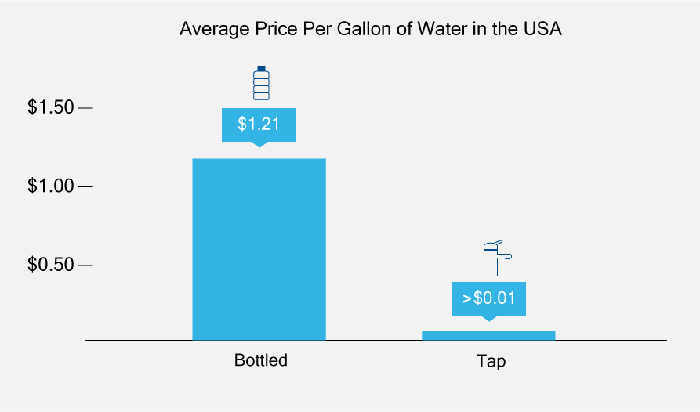Newest
Popular
Products
Billi Media
Why You Really Shouldn’t Refill Your Plastic Water Bottle
It’s Time to Chuck Your Plastic Water Bottle Away
It’s something that we all do. Grab an empty disposable plastic water bottle, fill it up, and think nothing of it. However, research is suggesting this isn’t good for you, and it’s even worse for the environment. The bottles that drinking water is sold in are not meant to be reused. Not only is bottled water more expensive than tap water, but it can supposedly also have adverse health effects. Alongside these health effects are the negative effects that plastic bottles have on the environment. There are plenty of reasons why you shouldn’t drink bottled water. Here are just a few…
Hormones
A key chemical found in some plastic bottles called BPA (Bisphenol A) can affect ovulation, and increase the risk of hormonally driven problems like PCOS, endometriosis and breast cancer, among other things. For men, it is said that BPA can contribute to increased risk of heart disease and cancer. If you wash single use plastic water bottles out and refill them, the plastic will start to break down. This means that harmful BPA will leak into your water. To avoid BPA, switch to a glass bottle, like the ones we make here at Billi, or stainless steel bottle.

Bacteria
Studies suggest that disposable plastic water bottles that are not washed out properly can harbour more bacteria than the average toilet. And you’re drinking from them! Not good. According to the study, around 60 per cent of the germs they found on the water bottles were able to make people sick. This is definitely a reason to quit using plastic water bottles, or at least wash them out properly if you insist on using them.
Expense
Bottled water is essentially the same as tap water, but it is packaged and sold to consumers with a huge profit margin. Bottled water can be anywhere from 240 to 10,000 times more expensive than tap water. There is even evidence that bottled water and tap water taste the same. A study was conducted in New York comparing both bottled and tap water, and 75% of people stated that they preferred the taste of tap water. Additionally, some companies have even been found to bottle tap water and sell it on to unsuspecting consumers.

Oil
Not only are massive amounts of oil needed to make the plastic bottles which the water is sold in, but oil is also needed to transport the bottles to their final destination. The Earth Policy Institute estimates that the energy used to pump, process, transport and refrigerate bottled water is over 50 million barrels of oil annually. Americans purchase a huge amount of bottled water a year, around 29 billion bottles. This requires 17 million barrels of oil to make those bottles. This has a huge environmental impact, especially as oil is finite.
Waste
Though many people assume that plastic bottles do not damage the environment as they can be recycled, they are wrong. Only about 13% of all water bottles sold in the US end up in the recycling. When plastic bottles go into landfill, or if they are incinerated, this further damages the environment. Plastic takes centuries to decompose so clogs up the land, but if it is incinerated, it releases toxic byproducts into the atmosphere such as chlorine gas and ash.
Furthermore, tonnes of plastic each year end up in the ocean. This can damage the fragile eco-structure and endanger the lives of marine animals. Currently, there are 165 million tonnes of plastic floating in the ocean.
Drinking from the tap really is your most sensible option. With Billi taps, you can access chilled, sparkling or boiling water in seconds. All this with minimal effect on the environment, especially compared to traditional water systems such as kettles or water coolers. To see how much energy and money you could be saving if you switched to Billi, just try our Green Calculator. Let it enlighten you!
For Billi on the go, we offer branded Billi glass bottles that are the perfect BPA free way to consume tap water on the go, at a fraction of the price of bottled water.
CATEGORIES
- 'How to' Guides
- Company News
- Eco News & Information
- Educational Information
- Health News & Information
- The Hydration Showroom
ARCHIVES
- September 2024
- August 2024
- June 2024
- April 2024
- March 2024
- February 2024
- December 2023
- November 2023
- July 2023
- June 2023
- May 2023
- April 2023
- March 2023
- August 2022
- April 2022
- March 2022
- October 2020
- September 2020
- March 2020
- February 2020
- January 2020
- December 2019
- November 2019
- October 2019
- September 2019
- August 2019
- July 2019
- June 2019
- May 2019
- April 2019
- March 2019
- February 2019
- January 2019
- December 2018
- November 2018
- October 2018
- September 2018
- August 2018
- July 2018
- June 2018
- May 2018
- April 2018
- March 2018
- February 2018
- January 2018
- December 2017
- November 2017
- October 2017
- September 2017
- August 2017
- July 2017
- June 2017
- May 2017
- April 2017
- March 2017
- December 2016
- November 2016
- October 2016
- September 2016
- July 2016
- July 2015
- July 2014
- May 2014
- March 2014
- January 2014
- July 2013
- June 2011
- March 2011